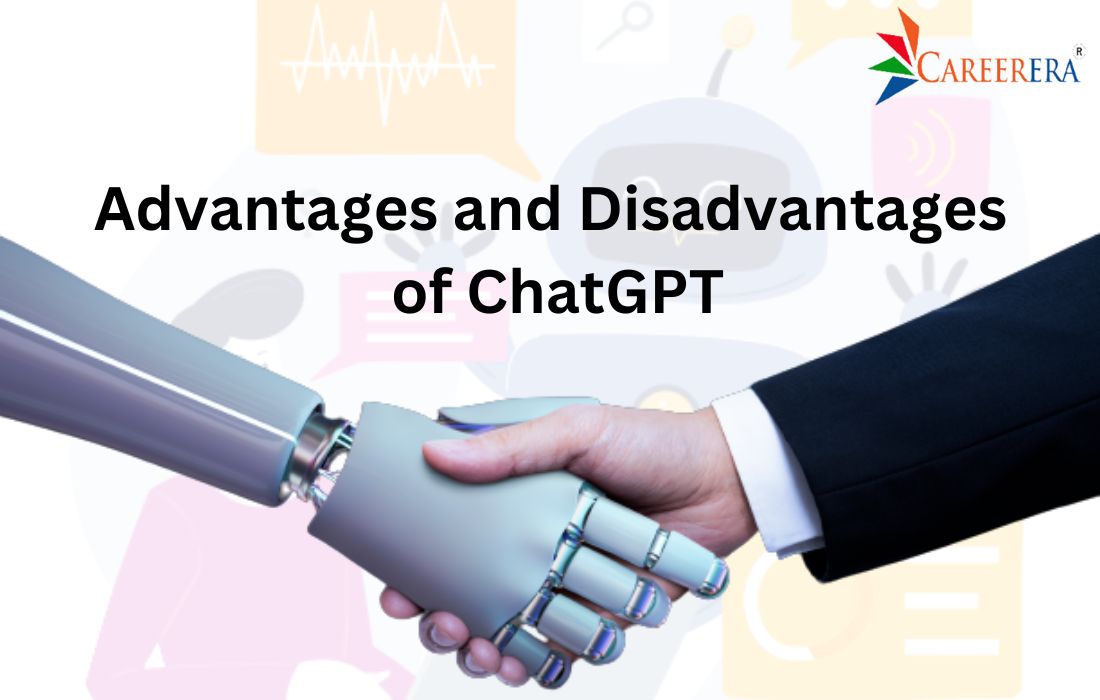ChatGPT is an AI language model developed by OpenAI. It is part of the GPT-3.5 architecture, designed to generate human-like text and engage in natural language conversations with users. ChatGPT builds on the capabilities of its predecessors, like GPT-3, to provide more coherent and context-aware responses in various applications. It can be used for various tasks, including answering questions, generating text, providing explanations, assisting with writing, offering recommendations, and engaging in general conversation. ChatGPT has been employed in customer support chatbots, content generation, virtual assistants, and many other applications where natural language understanding and generation are valuable.
What are the Advantages of ChatGPT?
However, it’s important to note that ChatGPT also has limitations, such as the occasional generation of incorrect or biased information, sensitivity to input phrasing, and a lack of true understanding of context. These limitations should be considered when deploying and using the model, and human oversight may be necessary for critical or sensitive applications to ensure accuracy and ethical usage. To get information about the Advantages of ChatGPT, you can read the given information carefully. Here are-
-
Scalable Training: OpenAI can continually update and improve ChatGPT’s training data and fine-tune its performance based on user feedback, ensuring ongoing enhancements.
-
Cost-Effective: Deploying ChatGPT can be cost-effective compared to maintaining a large team of human agents, especially for routine tasks and queries.
-
Consistency in Compliance: ChatGPT can adhere to predefined guidelines and compliance standards, reducing the risk of inadvertent rule violations in regulated industries.
-
Scalability: It can handle many queries and conversations simultaneously, making it suitable for customer support, content generation, and other high-demand applications.
-
24/7 Availability: ChatGPT can operate around the clock, providing instant responses and assistance to users, even outside regular working hours.
-
Consistency: ChatGPT maintains consistency in its responses and doesn’t get affected by fatigue, mood swings, or external factors, ensuring a reliable user experience.
-
Multilingual Support: It can understand the various languages and respond in multiple languages, breaking down language barriers and facilitating global interactions.
-
Versatile Applications: It can be applied across various domains, including healthcare, education, finance, e-commerce, and entertainment, making it a versatile tool for businesses and organizations.
-
Natural Language Understanding: ChatGPT can understand and generate human-like text, making it accessible and user-friendly for many users, regardless of their technical expertise.
-
Quick Information Retrieval: ChatGPT can retrieve information quickly from a vast knowledge base, making it an excellent tool for answering factual questions and providing references.
-
Enhanced Productivity: It can assist with tasks like drafting emails, generating code, brainstorming ideas, and summarizing text, boosting productivity in various professional settings.
-
Customizability: Users and developers can fine-tune ChatGPT’s behavior to align with specific requirements and standards, tailoring it to their needs.
What are the disadvantages of ChatGPT?
To mitigate these disadvantages, it’s crucial to use ChatGPT thoughtfully in contexts where its strengths align with your goals and to be aware of its limitations. Human oversight, fact-checking, and adherence to ethical guidelines are essential when utilizing AI chatbots like ChatGPT in applications that require accuracy and responsibility. If you need to know about the Disadvantages of ChatGPT, you can read the given details. Here are a few disadvantages of the chatgpt-
1. Lack of Real Understanding: ChatGPT generates text based on patterns learned from training data but doesn’t comprehend or understand the content. It can lead to nonsensical or irrelevant responses.
2. Inaccurate or Misleading Information: ChatGPT can sometimes produce factually incorrect or outdated information, potentially leading users astray if they rely solely on its responses.
3. Sensitivity to Input Phrasing: The same question or prompt can yield different responses based on how it’s phrased, which can be a source of inconsistency and frustration for users.
4. Tendency to Generate Biased Content: ChatGPT can inadvertently generate biased or politically skewed responses because it may reflect the biases in its training data.
5. Lack of Verification: It cannot verify the accuracy of the information it generates, so users must exercise caution and independently fact-check any critical information it provides.
6. Limitation in Critical Thinking: ChatGPT cannot think critically or apply judgment to complex situations, limiting its usefulness in tasks that require nuanced decision-making.
7. Limited Creativity: While it can be somewhat creative, ChatGPT’s creativity is often formulaic and may not match human creativity in tasks like content creation or problem-solving.
8. No Personal Experience: It cannot draw from personal experiences, emotions, or intuition, which limits its ability to provide advice or insights based on personal knowledge.
9. Can Produce Inappropriate Content: ChatGPT can generate inappropriate, offensive, or harmful content without proper guidance and oversight.
10. Difficulty Handling Ambiguity: It may struggle with ambiguous queries or situations requiring additional context, leading to vague or unhelpful responses.
11. Dependency Risk: Overreliance on ChatGPT in critical decision-making or complex tasks without human oversight can lead to errors and misunderstandings.
12. Resource Intensive: Training and deploying advanced AI models like ChatGPT can be resource-intensive regarding computing power, energy consumption, and infrastructure costs.
13. Privacy Concerns: Conversations with ChatGPT may involve sharing sensitive or personal information, raising privacy concerns if not managed appropriately.
Read Also : What is the latest version and features of PHP?


